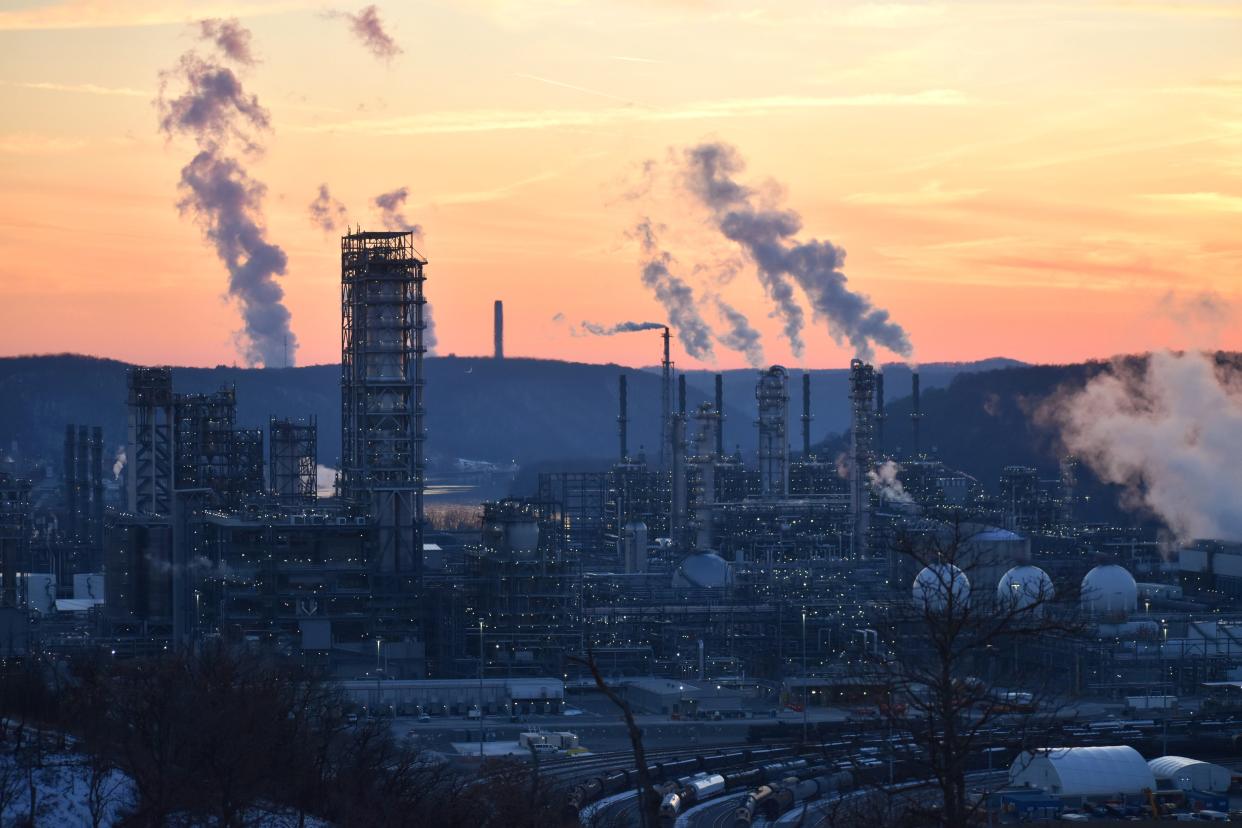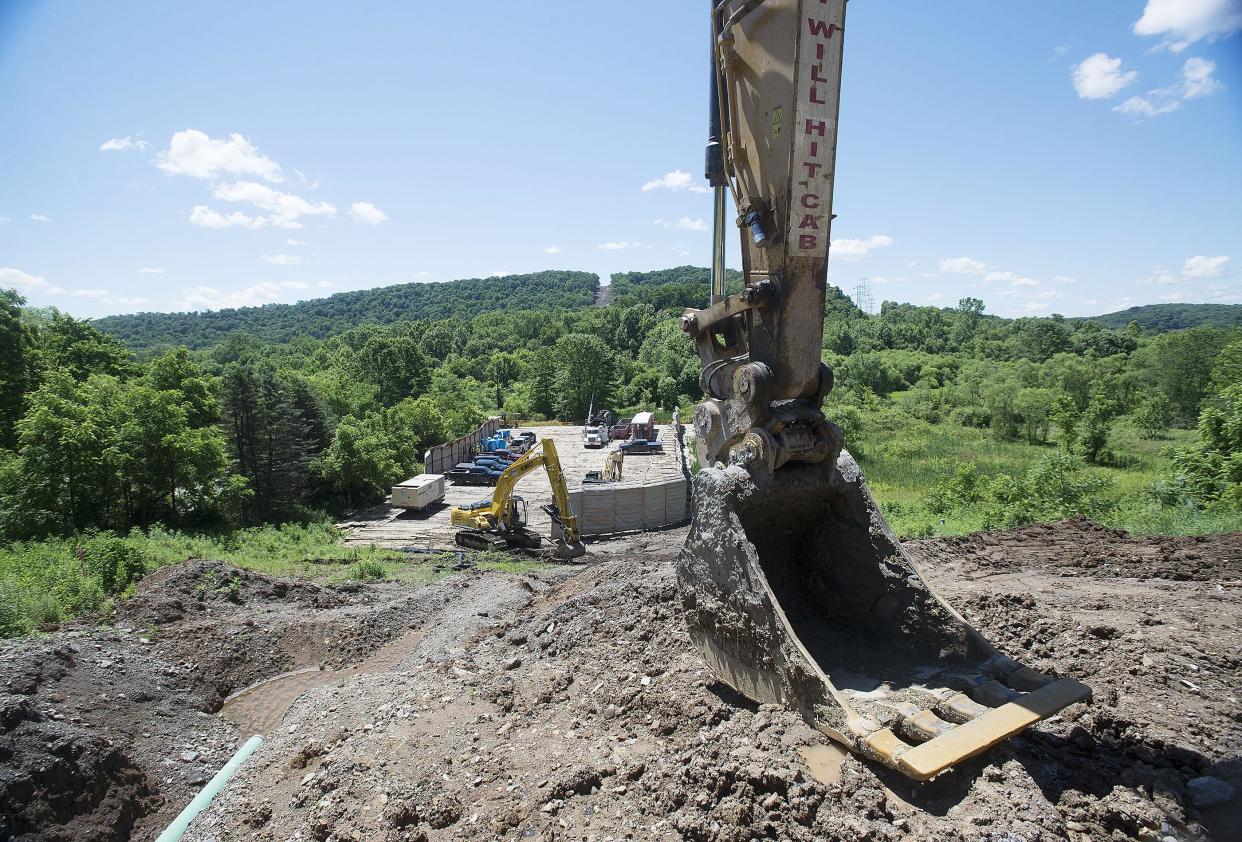Pennsylvania AG charges Shell for Falcon Pipeline spills during construction
The Pennsylvania Attorney General’s Office on Friday charged Shell Pipeline Co. with repeatedly violating the state’s Clean Streams Law and underreporting industrial waste spills during construction of its Falcon Pipeline – a 97-mile line that feeds ethane to Shell’s Beaver County cracker plant.

Attorney General Michelle Henry announced 13 misdemeanor charges filed at a district judge’s office in Washington County, alleging Shell failed to notify the Pennsylvania Department of Environmental Protection of multiple problems encountered during the company’s use of horizontal directional drilling to construct portions of the pipeline starting in 2019.
The charges include unlawful conduct, prohibition against discharge of industrial wastes and prohibition against other pollutants.
According to the criminal complaint, Shell contractors deliberately downplayed or failed to report drilling mud spills containing pollutants to avoid time-consuming inspections or shutdowns.
file:///C:/Users/Patrick/Downloads/Shell%20Complaint.pdf
The drilling mud, classified as industrial waste under state law, is used to lubricate the drill bit and stabilize the hole during construction. It can travel to potentially impact wetlands and surface water; the state said drilling mud made its way to streams and a wetland along the Falcon’s route.
Critical look: Groups ask feds to renew Falcon Pipeline scrutiny
Roughly 45 miles of the Falcon Pipeline runs through western Pennsylvania in Beaver, Allegheny and Washington counties.
The charges follow a myriad of whistleblower complaints from former pipeline employees who told state investigators Shell strategically underreported mud spills to avoid Department of Environmental Protection inspections or shutdowns.
An early whistleblower, environmental inspector Frank Chamberlin, previously claimed in an Occupational Safety and Health Administration complaint that he and his spouse were “harassed, ridiculed and humiliated” before their termination from the project for attempting to report violations.
Whistleblowers: Falcon Pipeline whistleblowers ‘fired for reporting hazards,' complaint says
Chamberlin, according to the complaint, documented underreported or non-reported spills and provided evidence to the DEP. He told state investigators he believed the company was underreporting spills to avoid shutdowns, which “cost Shell time and money,” according to the complaint. Other pipeline and DEP employees allegedly supported Chamberlin’s claims.
After disputing a spill amount early on, Chamberlin told investigators he was “given the cold shoulder” from other site inspectors. He claimed he was once told by a supervisor to report a 1,500-gallon spill as “75 gallons.”
When a DEP water quality specialist later asked a Falcon Pipeline construction manager about delayed spill reporting, the manager argued that if an inadvertent return occurs in the same spot more than once, it’s considered a “controlled release.” That’s not in line with the DEP’s definition, the specialist told investigators.
A former drilling coordinator on the pipeline project, Sean Larson, also told state investigators that a Shell project manager in one instance said he’s “not going to let (Larson) have the DEP jeopardize this project,” according to the complaint. Larson believed he was soon fired for being too transparent with state regulators.

During the investigation, another project inspector, identified as Larson’s brother, pointed to a subcontractor of Minnesota Limited LLC, the contractor hired to build Shell’s Falcon Pipeline. He claimed the company would “drill until there was a problem” due to a stand-by pay structure that provided “no incentive to do things the right way.”
The inspector believed that shutdowns due to inadvertent returns or drilling mud losses were largely preventable had the company “been proactive about problem-solving.”
In 2022, the DEP ordered Shell Pipeline Co. and Minnesota Limited to pay $670,000 in civil penalties for environmental and permit violations spanning two years after documenting multiple sediment and drilling fluid leaks from the project into area waterways.
Violation payment: Shell Pipeline Co. to pay $670K for Falcon violations
“Pennsylvania’s environmental laws are in place to keep families and communities safe from harm caused by major construction projects, such as pipelines,” said attorney general Henry. “This company chose to ignore those laws and kept quiet issues that should have been disclosed to prevent potential impacts.”
Shell representatives told press the company is reviewing the complaint, adding that Shell Pipeline Co. has “cooperated with all relevant local, state, and federal agencies” alongside affected communities to ensure the pipeline was built in a “safe and environmentally responsible manner.”
The company will continue to cooperate with all relevant agencies, according to the statement, and remains committed to being a “responsible neighbor.”
The case will be prosecuted by the Office of Attorney General’s Environmental Crimes Section.
This article originally appeared on Beaver County Times: Spills in lines to Shell plant lead to state charges
